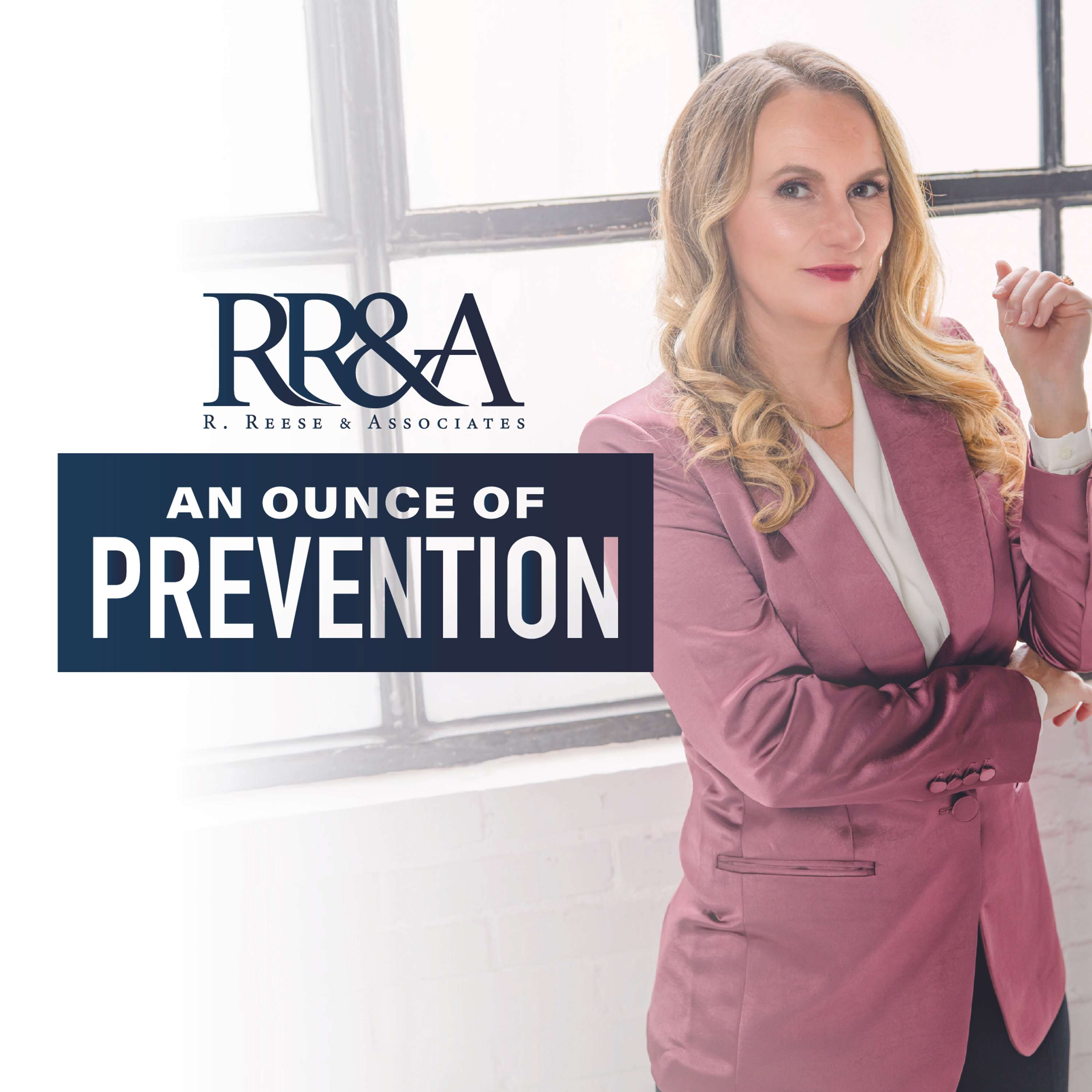An Ounce of Prevention

An Ounce of Prevention
Podcast Description
Benjamin Franklin famously said that “An ounce of prevention is worth a pound of cure,” and we completely agree. On An Ounce of Prevention, Rachel Reese explores the legal developments affecting your business, helping you protect your interest and prevent legal trouble.
Rachel Reese, the Founder and CEO of R. Reese & Associates, draws on her many years of experience in energy law to bring you up-to-date information. She also interviews experts on their work, offering a wide range of perspectives on the intersection of law and energy.
Podcast Insights
Content Themes
The podcast tackles themes related to legal developments in the energy sector, such as tiered insurance solutions in Master Service Agreements and the implications of the Corporate Transparency Act, with episodes featuring real-world applications and industry expert discussions.

Benjamin Franklin famously said that “An ounce of prevention is worth a pound of cure,” and we completely agree. On An Ounce of Prevention, Rachel Reese explores the legal developments affecting your business, helping you protect your interest and prevent legal trouble.
Rachel Reese, the Founder and CEO of R. Reese & Associates, draws on her many years of experience in energy law to bring you up-to-date information. She also interviews experts on their work, offering a wide range of perspectives on the intersection of law and energy.
Where should you register your business, and why does it matter so much?
In this episode of An Ounce of Prevention, we break down how business jurisdiction affects taxes, liability, compliance costs, and long-term growth.
Partner and Corporate Team Lead Tawnya Bell walks through the most common entity-formation choices founders make: Delaware, Texas, Wyoming, and when Series LLCs should be your first choice (and when it creates unnecessary risk). If you’re starting, restructuring, or planning an eventual exit, this conversation can save you time, money, and legal headaches.
This episode is designed for business owners, founders, and executives who want to make strategic, not trendy, decisions about corporate structure.
Time Stamps / Chapters:
00:31 – Introduction to corporate structure & jurisdiction
00:55 – Case law update: Non-compete enforceability
01:00 – Wiggins v. Southern Securities Group overview
02:55 – Mississippi Supreme Court ruling explained
04:05 – Why non-competes are often misunderstood
04:22 – Why jurisdiction matters when forming a business
05:02 – Delaware: benefits and limitations
06:18 – Texas business courts and why they matter
07:16 – Wyoming LLCs and the anonymity myth
08:17 – Series LLCs and long-term structural risks
09:39 – Practical guidance for choosing the right state
10:16 – Avoiding trend-based business decisions
11:12 – Disclaimers and closing remarks

Disclaimer
This podcast’s information is provided for general reference and was obtained from publicly accessible sources. The Podcast Collaborative neither produces nor verifies the content, accuracy, or suitability of this podcast. Views and opinions belong solely to the podcast creators and guests.
For a complete disclaimer, please see our Full Disclaimer on the archive page. The Podcast Collaborative bears no responsibility for the podcast’s themes, language, or overall content. Listener discretion is advised. Read our Terms of Use and Privacy Policy for more details.